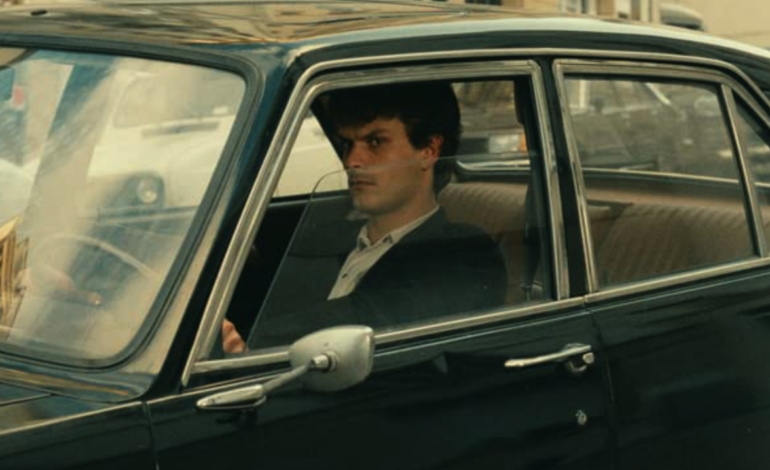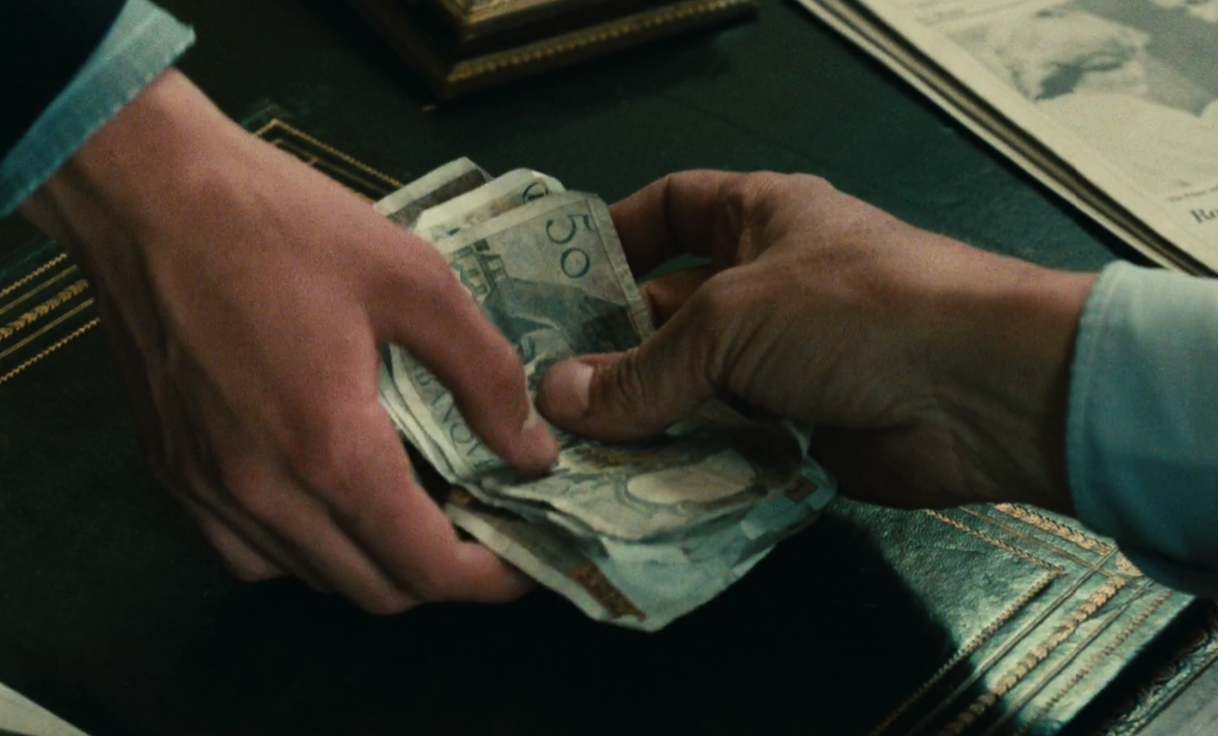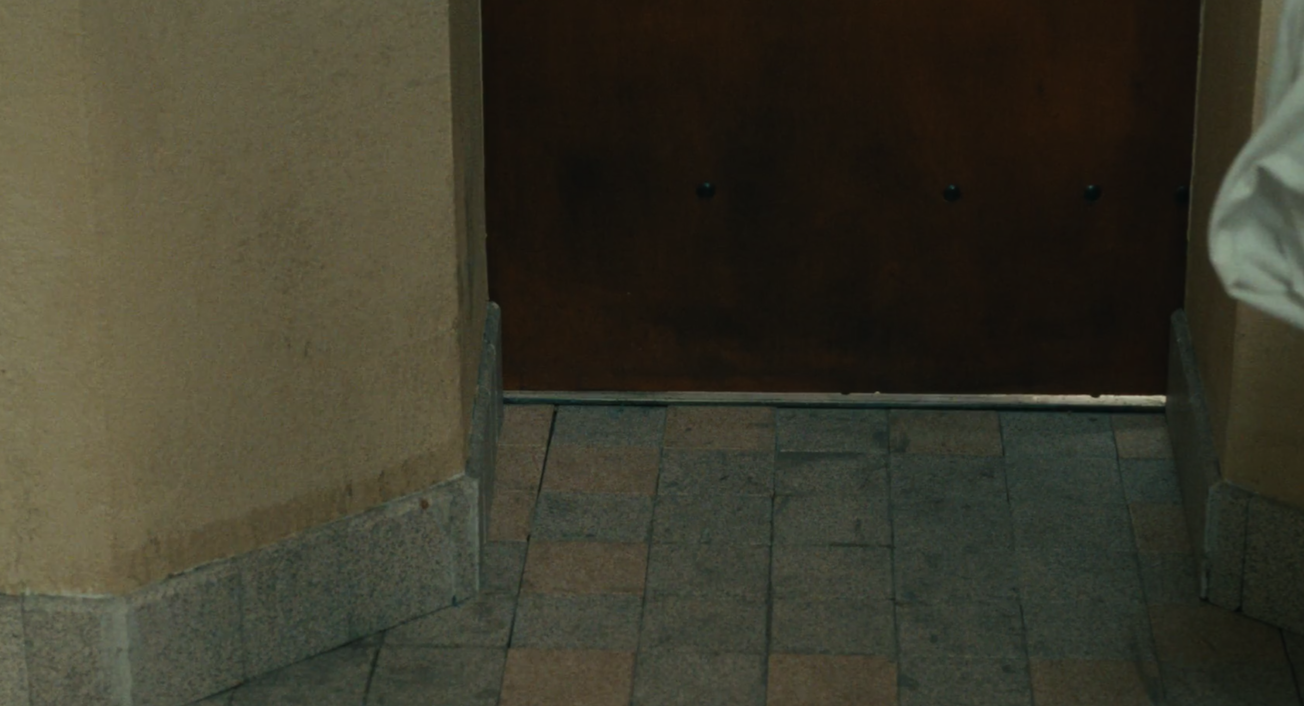

What gives truth value? The mere idea of “truth” is contested on a daily basis. We question our own sanity because we can’t seem to trust our subjective consciousness when studying something that is believed to be objectively true. I argue that the difference between fallacy and what is perceived to be the truth is simply confidence. The best and most common example to describe the power of confidence and its relationship to value is the idea of currency. As a society, we share collective confidence that the cash we carry is as valuable as the numerical value we associate with it. In reality, cash is just symbols printed on flimsy pieces of cheap paper. What happens when people share confidence in a lie? Robert Bresson’s final film L’argent, which translates to “money” in English, shows exactly what the consequences of confidence can entail in a world determined by saturated materialism.
Inspired by the two-part novella titled ‘The Forged Coupon’ by Leo Tolstoy published in 1911, L’argent follows the journey of a counterfeit bill made by a young schoolboy that ends up in the possession of a young truck driver named Yvon (Christian Patey). After Yvon is caught with the counterfeit bill, he is labeled a criminal and lands himself in a life of crime that escalates to cataclysmal violence and inevitably his own demise.
Class and privilege are interrelated concepts that are clearly established in the opening of L’argent. Norbert (Marc Ernest Fourneau), dressed in preppy attire, enters his father’s office in his bourgeois Paris apartment and reminds his father that it is the first of the month – he is owed his monthly allowance. The sound of his father ruffling through his wallet and rustling of the bills sets the tone for the story that is beginning to unfold.


Short of change he owes one of his schoolmates, Norbert calls his friend Martial (Bruno Lapeyre) to help him out. Martial passes him a 500 franc bill, but it’s a fake. To prove to Norbert that it works, Martial takes him to a photo lab and Norbert buys a picture frame with the bill. The key to a successful counterfeit bill is a good design and strong confidence. Unphased, the shopkeeper accepts the bill and sends the boys on their way. Once her boss finds out, he comes to the solution that they will simply redistribute the fake bills to prevent their establishment from being caught. L’argent explores the consequences of this decision.
Yvon Targe is a young truck driver who is working to provide for his family. A blue-collar worker, his apartment starkly contrasts that of Norbert’s family’s. Yvon and his wife live in a studio apartment with their single room living quarters serving as the couple’s bedroom they share with their young child and their dining room. After doing some work for the photo lab, Yvon gets paid in the very counterfeit bills the boss is seeking to get rid of. This leads him to getting arrested without the boss of the photo lab and his employee Lucien (Vincent Visterucci) to vouch for him. They confidently lie all the way to court to save themselves from any attachment to the matter, flipping the blame upon Yvon, leaving him labeled as a poor “criminal,” despite the charges against him being dropped (as a courtesy). The photo lab staff, as the contrasting elite in comparison to Yvon, stick up their nose as they bask in their own privilege, confident in their collective lie to save themselves from the seeds of consequences Yvon will have to reap.
Once Yvon is labeled as a criminal, his freedom exists within the conditional confines of the consequences that come with that label. He is othered and looked down upon from the corrupt elite that is responsible for his status. Visually, he is constantly trapped, and the viewer is left with nothing to spare for an ounce of escapism. The overall tone of L’argent is apathetic and emotionless. It’s hard to empathize with any of the characters, including Yvon due to the lack of color in his performance. This focuses the attention upon the story that’s at play and the sequence of cause and effect as the viewer reflects on how that makes them feel. No matter how it’s read, L’arget leaves the viewer angry at the injustice without much need for emotional pulls.


Bresson reminds the viewer of Yvon’s limited freedom by his use of doors and doorframes. Coming out of his lawyer’s office, Yvon passes through three sets of door frames. The composition is tight and uncomfortable, and it is a repeated motif throughout the film. The walking in and out of door frames also mimics the rhythm of the exchange of currency. The jingle of the photoshop’s front door followed by the sound of the door closing is synonymous with the jingle of the cash register. It’s a reminder of the commonality of the material world and its conditional relationship to our idea of freedom.
Since being framed for using counterfeit bills, Yvon is now dependent on money to survive and to provide for his family. Out of a job and desperate for money, Yvon takes on his new label of “criminal” by acting as the getaway driver for a bank robbery. For this crime, he is charged and sentenced to a minimum of three years in prison. He sacrifices his freedom for the pursuit of money, and while he is in prison, he loses everything that truly matters to him, leaving him with nothing to look forward to upon his release. Once in prison, the idea of freedom changes shape. Rather than being a pursuit of money to provide, it becomes more limited. Visually, instead of a full door frame, Bresson presents shots of the light under Yvon’s cell door. He allows the viewer to hear just beyond the door and to see the passing shadows, yet, still within the prison, this image of freedom in itself is limited in our perception of it.
Yvon is released from prison with nothing but rage against a society and a system that manipulated him. He goes on a killing spree and ultimately turns himself in. With nothing to live for, he gives up his freedom in its relationship to the material world. With such confidence, an initial schoolboy prank escalated to perjury and left a man to suffer the consequences because he was at a disadvantage in comparison. Money under the table can cover a young boy’s scam, but nothing could save a desperate man guilty of bad circumstances.
